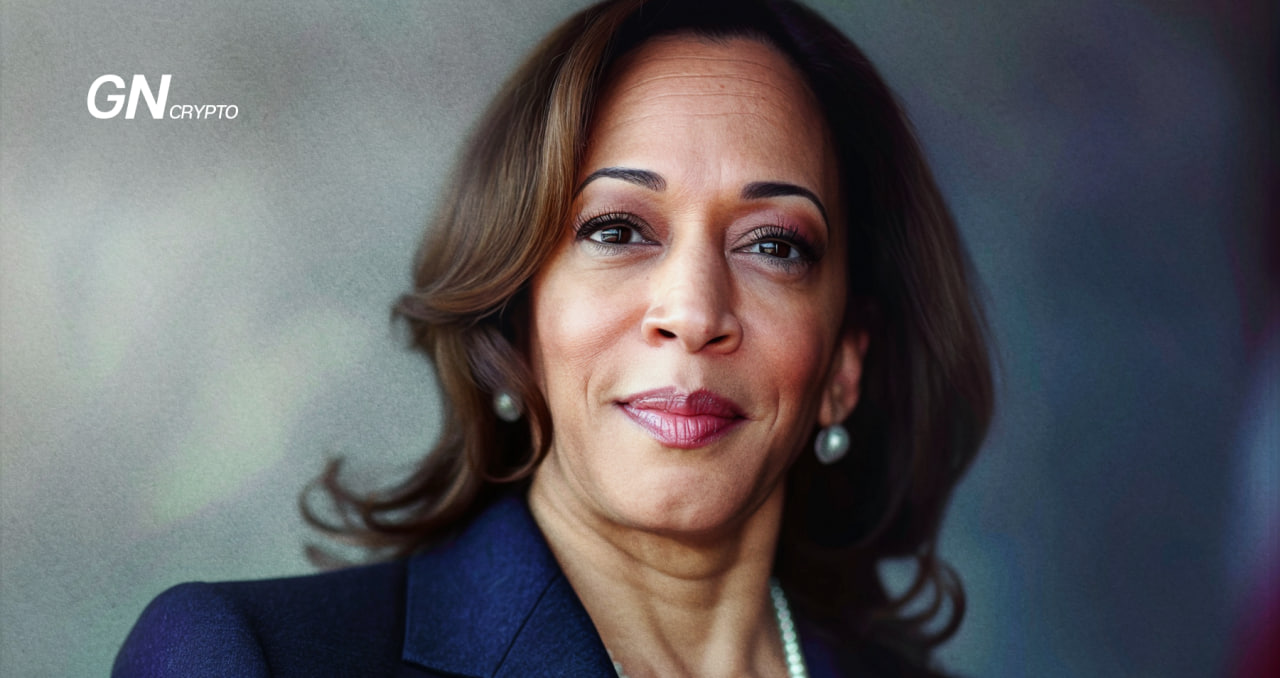Kamala Harris and Crypto: Unburdened by What Has Been

Under the Biden administration, the American crypto business seems to have been stifled from realizing its full potential. Will this situation persist as “consistently poor” under a potential presidency of Kamala Harris? What are the odds that she will take a softer stance on cryptocurrency?
On this page
On Sunday, July 21, 2024, President Joe Biden announced that he would not be running for re-election and endorsed a new potential candidate from the Democratic Party, current Vice President Kamala Harris.
My intention is to earn and win this nomination,
Harris declared a few hours later.
While Harris is not yet the official Democratic presidential candidate, this decision is expected to be made at the Democratic National Convention scheduled for August. However, according to the Associated Press report, with just 100 days left until the upcoming election, leading Democrats have rallied around Kamala in hopes of defeating the Republican candidate, Donald Trump.
It's important to note that Trump has promised comprehensive support for the crypto industry and has actively attracted multimillion-dollar donations from the biggest players in the market under such promises.
It is difficult to analyze specific statements from Kamala Harris about cryptocurrencies and blockchain, as she has not publicly articulated a clear stance on this issue throughout her vice presidency. Nevertheless, it's possible to speculate on what the crypto industry might expect if Kamala Harris were to fully assume the role of President.
Biden vs. Crypto
Discussing the policies enacted by the Biden-Harris administration (with Kamala Harris as a key player), it is clear that Joe Biden's White House was a hindrance to the cryptocurrency industry.
The collapse of FTX and the murky story of donations to the Democrats, generously distributed by Sam Bankman-Fried, certainly did not help the crypto cause. Joe Biden appointed figures like Treasury Secretary Janet Yellen, who advocates for the rapid implementation of CBDCs, and the notorious cryptocurrency adversary Gary Gensler—Chairman of the Securities and Exchange Commission (SEC). Gensler initiated high-profile legal actions against major crypto market players. Moreover, many influential institutions (including members of Congress, the Federal Reserve System, and the US Department of Justice) have consistently attempted to marginalize cryptocurrency from the American financial system.
While other countries and jurisdictions were swiftly developing legal frameworks for the burgeoning crypto industry, the US federal government delayed addressing these issues for four long years. This delay wasn't merely a “regrettable misunderstanding”; the Biden-Harris administration consistently ignored numerous calls to regulate the market, presumably hoping that in a legal vacuum, the crypto business might gradually falter and disappear.
However, recently, there have been signs of fracturing in the Democrats' steadfast crypto skepticism. This is evident in the situation surrounding the resolution to repeal SEC Bulletin SAB 121, issued in April 2022, which complicated the storage of crypto assets for financial sector companies. Over 20 Democrats in the House of Representatives and a dozen in the Senate voted for the repeal of SAB 121. The interest in these votes against SEC policy is intensified by Biden's prior announcement that he would veto the resolution. Thus, Democrats openly voted “against” the White House and “for” the crypto industry. Was this a mutiny, or did they anticipate that Biden would not seek a second term?
Meanwhile, analysts at Pantera Capital believe that the Biden-Harris administration's stance is beginning to soften. Regarding SAB 121, the President seemingly did not want to publicly oppose Gary Gensler, whom he had appointed.
Biden is choosing instead to take the quieter path of asking the SEC to change the rule on their own
according to Pantera Capital.
Also noteworthy is the Financial Innovation and Technology for the 21st Century Act, aimed at bringing legal clarity to the cryptocurrency and blockchain industry. This bill, criticized by Biden and Gensler, still received bipartisan support in Congress.
The Administration has stated that it “looks forward to continued collaboration with Congress on developing legislation for digital assets that includes adequate guardrails for consumers and investors while creating the conditions needed for innovation.”
Biden-Harris Administration vs. Crypto Lobbyists
The shift in governmental rhetoric toward cryptocurrencies may be attributed to the crypto industry's lobbying efforts. Industry groups have repeatedly attempted to reach out to the Administration, both publicly and behind closed doors.
One of the most recent efforts came from the Chamber of Progress, a group funded by big tech companies that focuses on fostering a fair market environment and progressive taxation, among other things. This group urged President Joe Biden to endorse cryptocurrency regulation and warned that Donald Trump could sway young American voters by capitalizing on the Administration's lack of initiatives in this area.
Overwhelmingly, this is an issue important to Gen Z and Millennial voters, with over 50 percent of those age groups supporting a federal policy that encourages digital asset use in the U.S.
the Chamber of Progress reported.
While Harris has not yet secured the Democratic nomination, another industry group, the Digital Chamber, published a letter urging the potential Democratic candidate to support cryptocurrency legislation.
We believe this technology is non-partisan and the Democratic Party should also champion these innovations to help reaffirm the U.S.’ position as the leader in the global digital economy
they wrote.
Figures such as Senate Majority Leader Chuck Schumer, Speaker Emerita Nancy Pelosi, and most Democratic leaders in the House of Representatives have recently endorsed legislation concerning digital assets. These leaders represent the evolving stance of the Democratic Party on cryptocurrencies. “However, there is a public perception that the party holds a negative viewpoint on digital assets, largely due to the Biden/Harris Administration’s notably cautious and at times hostile approach to these transformative technologies,” the lobbyists expressed.
They call on Democrats to:
- Emulate Republicans by including provisions in the party platform that support digital assets.
- Choose a vice-presidential candidate who is well-versed in digital assets, with a proven track record of supporting innovation-friendly initiatives.
- Engage with leaders from the digital assets and blockchain industry to discuss potential policies under a Harris Administration.
Data shows that digital assets are being adopted at higher rates among Black and Latino Americans and immigrant communities, key constituencies of the Democratic party compared to traditional financial products
experts from the Digital Chamber assure Kamala Harris.
Kamala Harris vs. Crypto and Big Tech
When Joe Biden first entered the White House, a significant portion of his economic advisors were aligned with Elizabeth Warren, the senator from Massachusetts since 2013, known for her persistent criticism of cryptocurrencies. After Biden announced he would not run for re-election, Warren quickly endorsed Kamala Harris. However, according to media reports, Kamala is somewhat removed from the administration's overall economic policy and does not have close ties with Warren's team. A crypto lobbyist, speaking anonymously to Fortune, described the situation in the Biden-Harris administration as hanging in limbo. The forthcoming selection of vice-presidential candidates and advisors could provide more clarity on Harris’s approach.
Regarding Kamala's stance, it's notable to recall a statement she made that has since become a meme.
“What can be, unburdened by what has been.”
Now, a viral four-minute video compilation features Kamala Harris repeating this phrase at various events:
This phrase is incredibly adaptable and imbued with hope, making it relevant to a wide range of topics, including the prospective cryptocurrency policies under a future Harris Administration.
However, setting aside humor, the crypto community had reasons for optimism a few years back when media outlets highlighted a noteworthy member of Kamala Harris's team, Ryan Montoya, the former CTO of the NBA’s Sacramento Kings. Known for their crypto-friendly initiatives, the Kings were pioneers in many crypto-related ventures under Montoya’s leadership. This included issuing a fan token, mining cryptocurrency as early as 2018, auctioning game-worn jerseys on the Ethereum blockchain in collaboration with ConsenSys, and being the first NBA team to accept Bitcoin in 2014. Montoya's presence in Kamala’s circle suggested a potentially positive outlook for crypto. However, Montoya's reputation was later marred by stories of mistreatment of employees.
To better understand how President Harris might approach cryptocurrency, it's useful to examine her background and actions during the 2010s. A native of California, Kamala Harris had notably close relationships with Silicon Valley early in her career. She was elected twice as California's Attorney General, with her campaigns receiving support from tech figures like Facebook СОО Sheryl Sandberg, former Chief Design Officer at Apple Inc. Jony Ive, and Marc Benioff, co-founder, chairman and CEO of the software company Salesforce, owner of Time magazine since 2018. Media reports suggest that the tech elite backed Harris in both her successful Senate campaign and her earlier unsuccessful attempts to secure the Democratic Party’s presidential nomination.
According to The New York Times, in a 2010 meeting with Google employees, Kamala portrayed herself as a pragmatic ally and innovator who could speak the language of the tech industry. At that time, the issue of internet privacy was particularly pressing, and Harris promised to strike a balance between the needs of businesses and consumers. Addressing the dominance of tech giants, she urged caution against myopia and emphatically stated that she “cannot stand in the way of business growth and development.” Extrapolating this attitude to the current landscape of the American crypto industry, one might adopt a cautiously optimistic view: Kamala clearly understands the importance of business-oriented rhetoric.
As the Attorney General of California, Kamala Harris consistently protected the interests of technology companies, never “biting the hand that feeds her.”
Jamie Court, president of Consumer Watchdog, recalls an instance in 2011 when he wanted Harris to support legislation that would prohibit technology companies from monitoring users' online activities if they opted out of tracking. Harris did not support the bill and later backed a more lenient measure that only required companies to disclose their information collection practices in their privacy policies.
She presided over this era of great consolidation and power in the hands of these tech giants and she didn’t do a thing
claims Court.
Privacy is a foundational principle of the cypherpunk philosophy. Therefore, Harris's ideology seems to be far removed from the ideals of cryptography. On the other hand, the crypto industry is technology-driven, so Kamala's affinity for big tech might, to some extent, extend to cryptocurrency.
However, what underpins this affinity? Clearly, it's the influence of donor money. Thus, in a scenario where Trump and Harris are running closely in the presidential race—a possibility not out of the question—major crypto businesses might want to consider making donations not only to Republicans but also to Democrats. If lobbyists can influence the right appointments in the SEC or the Fed, the crypto industry might gain a chance for a more favorable stance from the Administration, leading to a more advantageous market environment.
The content on The Coinomist is for informational purposes only and should not be interpreted as financial advice. While we strive to provide accurate and up-to-date information, we do not guarantee the accuracy, completeness, or reliability of any content. Neither we accept liability for any errors or omissions in the information provided or for any financial losses incurred as a result of relying on this information. Actions based on this content are at your own risk. Always do your own research and consult a professional. See our Terms, Privacy Policy, and Disclaimers for more details.

























